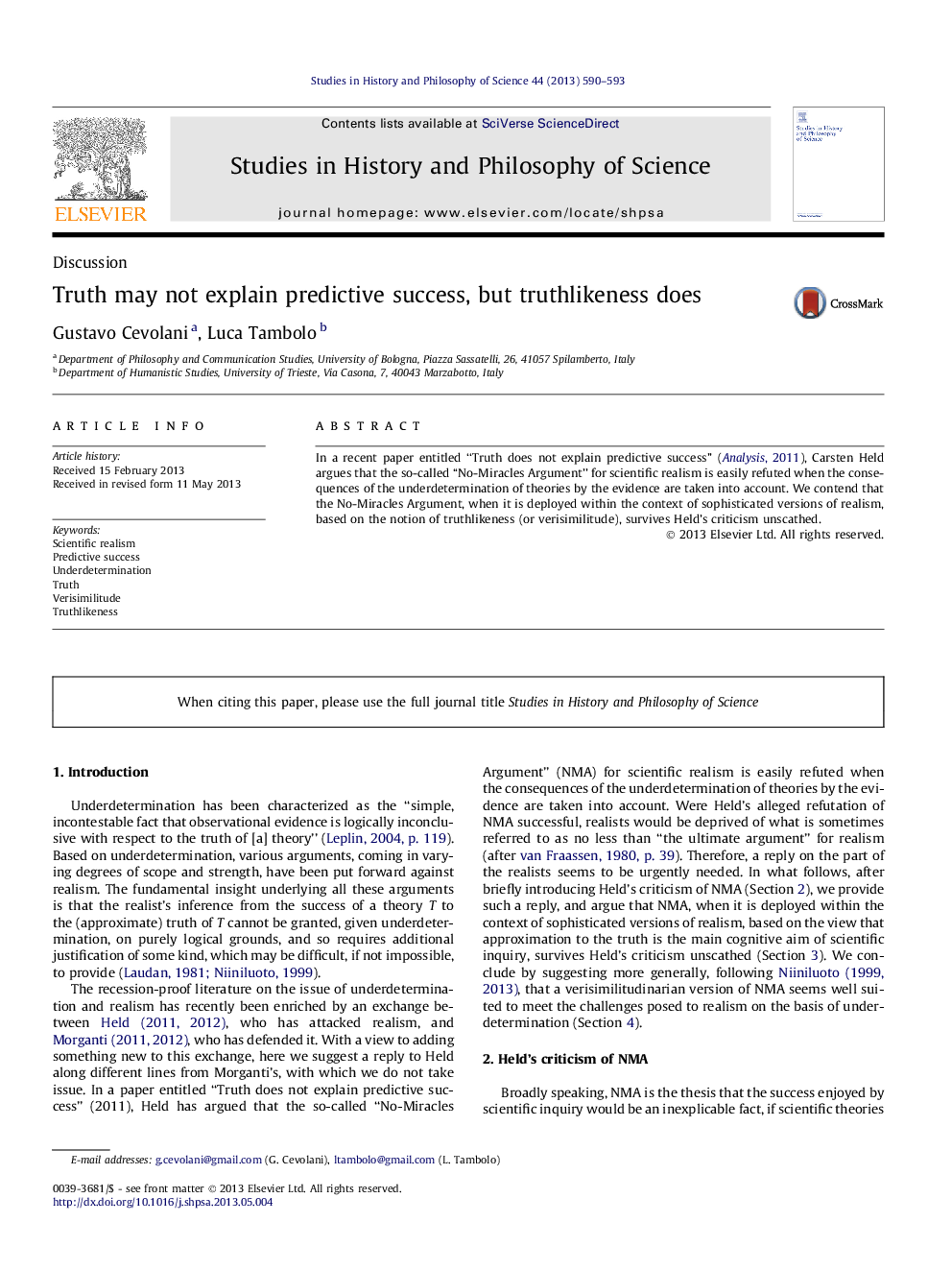| Article ID | Journal | Published Year | Pages | File Type |
|---|---|---|---|---|
| 1160657 | Studies in History and Philosophy of Science Part A | 2013 | 4 Pages |
•Carsten Held’s (2011) criticism of the No-Miracles Argument for realism, based on underdetermination, is discussed.•We argue that such criticism may apply to naïve versions of realism, but sophisticated versions of realism eschew it.•We show how verisimilitude-based versions of realism allow to vindicate the intuition underlying the No-Miracles Argument.
In a recent paper entitled “Truth does not explain predictive success” (Analysis, 2011), Carsten Held argues that the so-called “No-Miracles Argument” for scientific realism is easily refuted when the consequences of the underdetermination of theories by the evidence are taken into account. We contend that the No-Miracles Argument, when it is deployed within the context of sophisticated versions of realism, based on the notion of truthlikeness (or verisimilitude), survives Held’s criticism unscathed.
